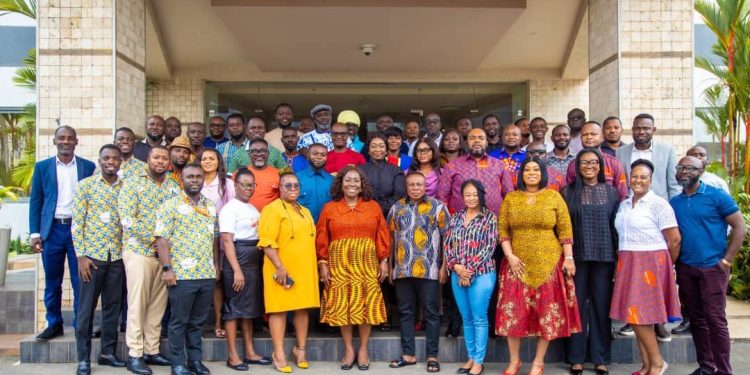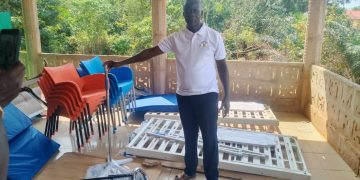August 26, 2025 —In an effort to improve its relationship with the media, the Ghana National Gas Company (GNGC) Limited held a one-day training session for journalists. This strategic move is designed to influence public perception and increase awareness of the gas sector.
Held at the Palms Hotel in Takoradi, Western Region, the session was themed “Media’s Role in Shaping Perception: Overview of Ghana Gas Company Limited.”
The training was spearheaded by the Corporate Affairs Department of Ghana Gas and aimed to deepen media professionals’ understanding of the gas industry, including its operations, safety measures, and community involvement.
Opening the session, Judith Adjobah Blay, Chief Executive Officer of Ghana Gas, emphasized the importance of accurate and informed journalism in shaping public opinion about the gas industry.
“The participants, mainly journalists, are now well equipped with factual information to report responsibly about Ghana Gas. This empowerment enables the media to deliver accurate and impactful energy news,” she said.
She also provided context about the company’s inception, noting that Ghana Gas was established to commercialize gas at a time when Ghana had no policy on gas flaring. The company’s mandate includes the gathering, processing, transportation, and marketing of gas.
Interestingly, the training coincided with a 10-day scheduled maintenance shutdown of the Atuabo Gas Processing Plant. CEO Adjobah Blay noted that this timing was strategic, allowing the company to reinforce its commitment to transparency while maintaining operational integrity.
Mr Solomon Daisie Gyenfie, Assistant Manager of Engineering and Maintenance, further explained that “The shutdown is akin to a health check-up an investment in the safety, reliability, and integrity of our processing plant.”
Benjamin Buabeng Acheampong from the Commercial Department provided an in-depth look at Ghana’s gas value chain and the company’s aggregator role. He explained the journey of Ghana Gas since its establishment in 2011, detailing the commissioning of critical facilities and the broader scope of the petroleum sector in which the company operates.
Mr John Kofi Fayemi, who focused on Ghana Gas’s community engagement and compensation frameworks, addressed sensitive issues such as land acquisition, buffer zones, and the urgent need to halt illegal mining (galamsey) activities near Ghana Gas installations.
“We cannot compromise the safety and operational integrity of our infrastructure. We must secure social licences from project communities and ensure proper legal ownership of lands used,” he urged.
Mr Leo Akufo Kwapong highlighted Ghana Gas’s expanding role in the energy ecosystem, especially its involvement in the Cash Waterfall Mechanism a system that ensures equitable distribution of revenue across the energy value chain.
He also announced progress on a second gas processing plant, underscoring Ghana Gas’s strategic drive to meet growing energy demands and create a resilient national gas infrastructure.
On building a stronger Media–Ghana Gas partnership, Mr Richard Ernest Kirk-Mensah, Head of Corporate Affairs, reiterated Ghana Gas’s commitment to opening up communication with the media.
“We are dedicated to building a transparent and collaborative relationship with the media. Together, we can tell the story of Ghana Gas and its vision in a way that inspires national development.”
The Takoradi training program was a significant step in Ghana Gas’s approach to engaging with the media. By educating journalists and fostering transparency, the company not only clarified its operations but also reinforced its commitment to being a responsible corporate citizen. The key takeaway was that informed journalism can play a crucial role in promoting national development through energy awareness and responsible reporting.
By Nzema Today TV










